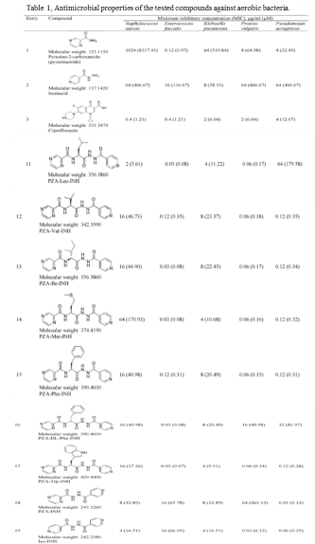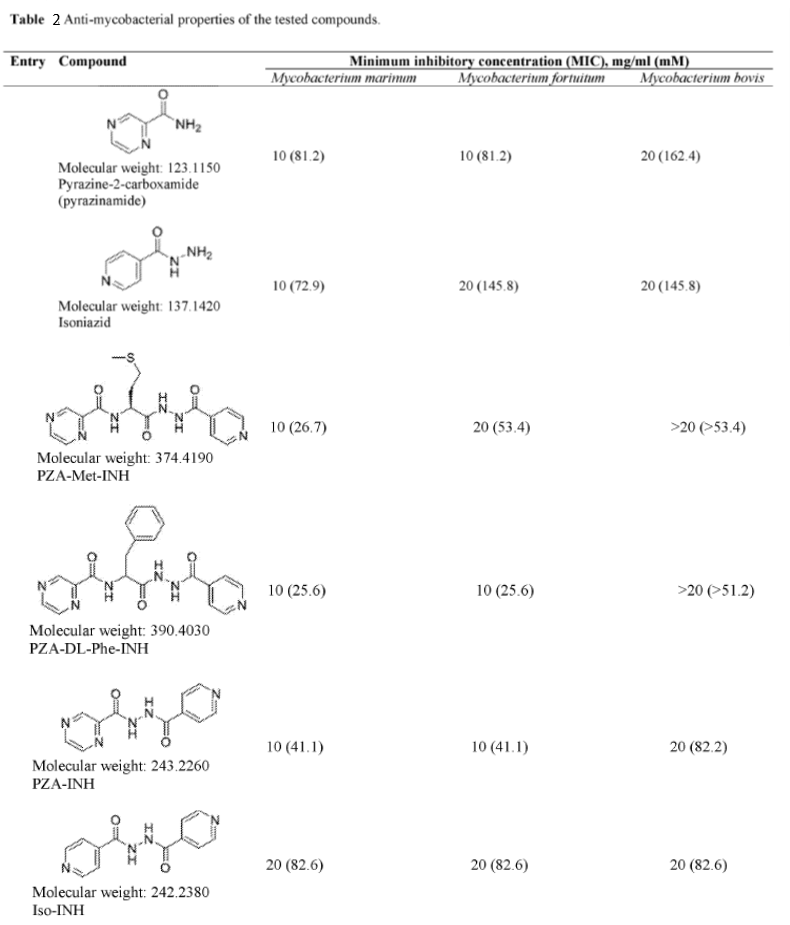Description:
The current state of the art:
Tuberculosis is one of the top 10 causes of death worldwide. Patients are treated for two months with first-line drugs including isoniazid, rifampin, pyrazinamide, and ethambutol, followed by another four months of isoniazid and rifampin alone.
The problems of the current art:
However, the multidrug-resistant disease occurs when patients develop resistance to isoniazid and rifampin. Current existing drugs are of limited efficacy against drug-resistant tuberculosis.
The advantages of our invention:
AU scientists synthesized novel pyrazinoic acid and isoniazid conjugates connected through an amino acid linker using a molecular hybridization approach. These conjugates are not only effective against tuberculous (mycobacterium bovis, Table 1) but also non-tuberculous mycobacteria (mycobacterium marimum and fortuitum, Table 1) and a variety of microbial strains including, aerobic bacteria (Staphylococcus aureus, Enterococcus faecalis, Klebsiella pneumonia, Proteus vulgaris, Pseudomonas aeruginosa, and Proteus vulgaris, Table 2). Moreover, synthesized conjugates did not affect cell growth of immortalized retinal epithelial cells and are safe to the human normal cells. Therefore, pyrazinoic acid-isoniazid conjugates is a promising candidate for drug resistance in tuberculosis and other drug-resistant bacterial infection.


AURI: 2018-033
IP status: non-provisional 16/674,651
Reference: https://pubs.rsc.org/en/content/articlelanding/2019/ra/c9ra03380g#!divAbstract
Lead Inventor: Siva Panda, Ph.D. https://www.augusta.edu/scimath/chemistryandphysics/siva-panda.php